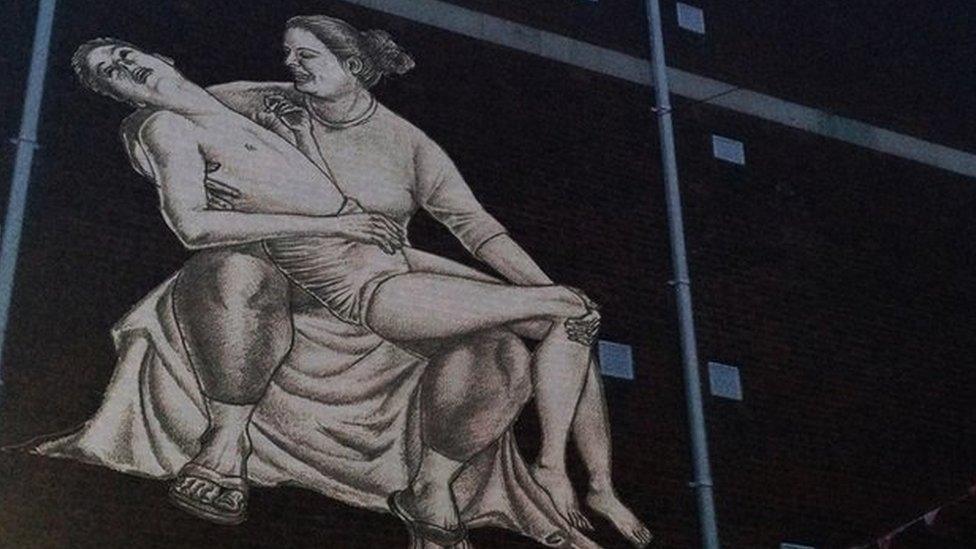Covid in Scotland: Unpaid carers are like Cinderella - nobody sees us
- Published
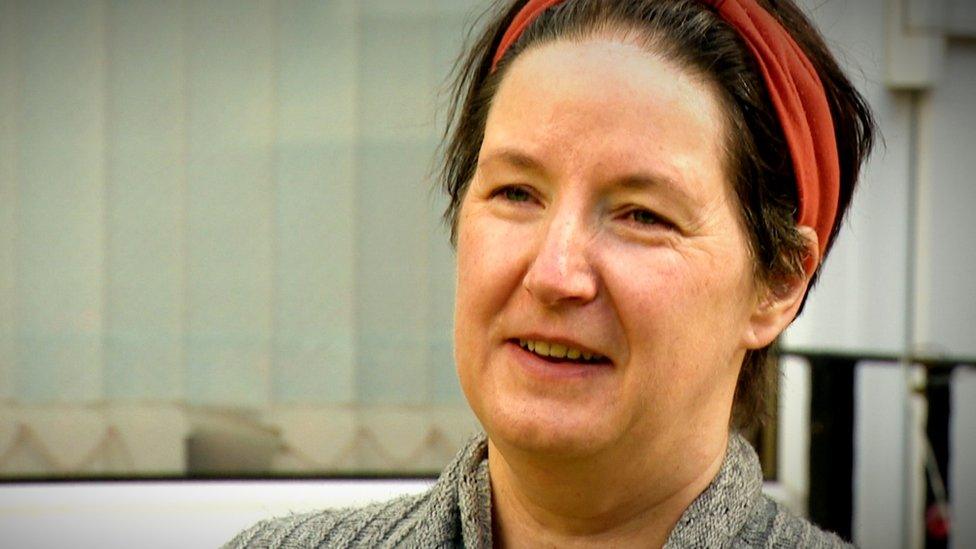
Fiona Fisher is an unpaid carer for her son - but has had no help or break for 84 weeks
When lockdown was first imposed last March, it was the first time Fiona Fisher had felt the rest of the country was living a life similar to her own.
"Except now everyone has went back to normal, and we've not," she said. "Being a carer for the last quarter of a century, I'm quite used to being locked down and away from society.
"We're like Cinderella - nobody really recognises or acknowledges what we're doing."
Fiona, from Dunfermline, is an unpaid carer for her 27-year-old son Jonathan who has a number of learning difficulties and health problems, including epilepsy and a kidney disorder. He is also registered blind.
"Just anything you can imagine a person needs, he needs help with," she said.
'Zero tolerance' for Covid risk
For the last 84 weeks, Fiona has had no help and no break.
Just before lockdown, she withdrew Jonathan from a day service for adults with learning difficulties which he had attended five times a week.
She said it was a place which helped Jonathan and his peers have a "rich, varied and good quality life".
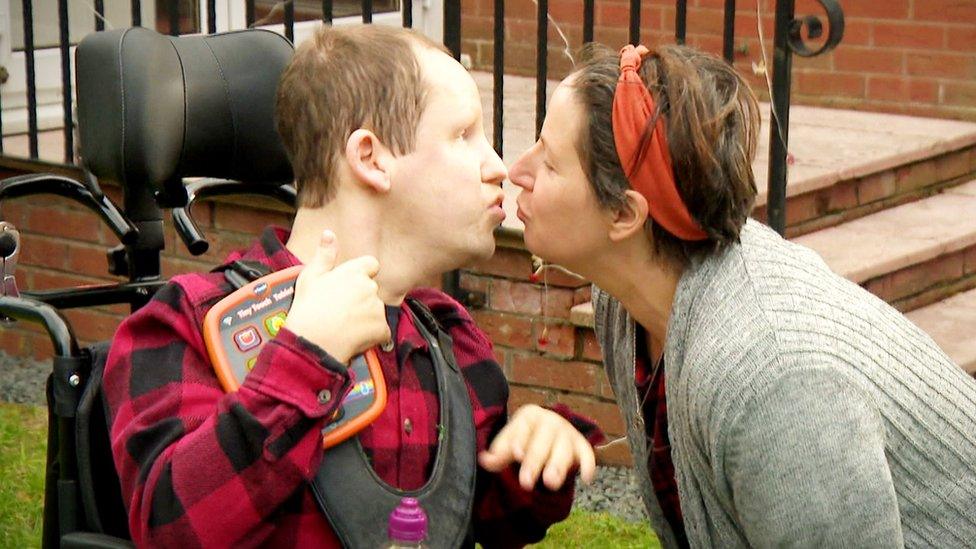
Fiona left her job to look after Jonathan when he was born
Now, she believes the risk of either her or Jonathan catching Covid is too great for him to go back.
The family's experience chimes with recent figures, external from Carers Scotland, which showed seven in 10 unpaid carers have lower or no access to day services.
"Because there's no guarantee on how people can be affected by Covid, we've got a zero-tolerance to risk for Jonathan," Fiona said.
"Just before the pandemic had really started to get going, Jonathan sneezed in my face and it just made me think - I couldn't teach him sneeze protocol. The idea of him going in and potentially infecting his peers frightened me.
"Some services were offered to us with outreach but we weren't confident about forming a bubble with carers, even though they're like our extended family. And to be fair I thought there were families who needed it more than we did."
'We are not being acknowledged'
Despite feeling like they have lived in "Groundhog Day" for the last year and a half, Fiona believes Jonathan has coped well with the loss of services due to his "gentle nature".
But as life has returned closer to normality for the rest of society, she said it has been difficult to watch from the side lines - particularly when the NHS is struggling and an increase in Covid cases is forecast as a result of COP26.
Fiona said: "It's just like pressing your face against the window watching the world have its normal life, knowing there's a great risk to the community.
"There are days where I think, 'why are we not being acknowledged here?'. There was a campaign a few years ago and it talked about how people are only an accident or an illness away from being a carer."
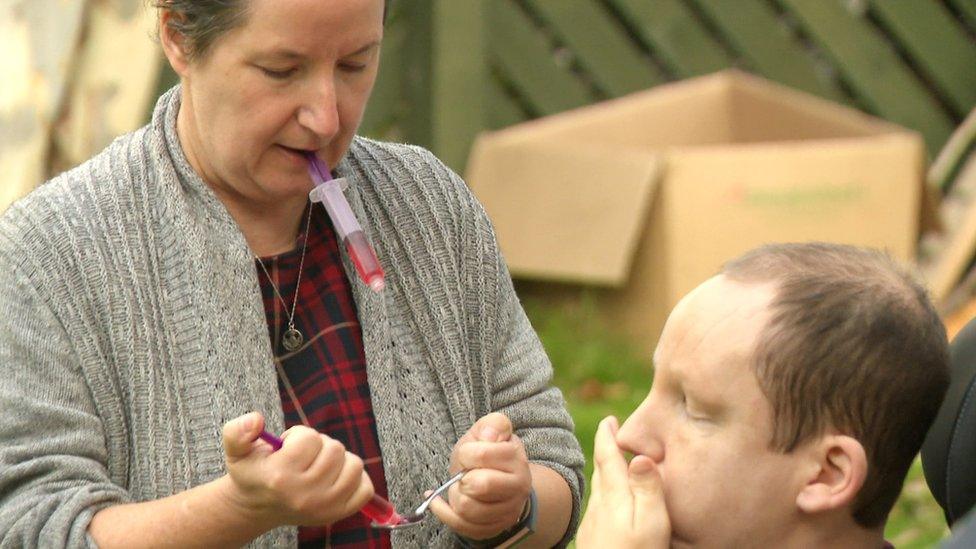
Charity Carers Scotland has warned of a social care crisis because people like Fiona are being 'pushed to breaking point'
Fiona's frustration is not exceptional. Carers Scotland has warned that unpaid carers are being "pushed to breaking point" with additional pressures placed on social care.
Meanwhile only 10% are confident they'll be able to access appropriate respite care over the next year.
Warning of 'new social care crisis'
The charity's director Simon Hodgson said: "They will not be able to cope if we go on like this and the social care system they prop up would collapse without the care they provide.
"The comprehensive spending review must recognise this and invest in our unpaid carers, or we risk sleepwalking into a new social care crisis."
The Scottish government said it has invested an additional £28.5m for local carers support in this year's budget.
Social Care Minister Kevin Stewart said: "The Scottish government is extremely aware of the value of day services to adults with additional support needs and their families.
"We have been working closely with all local areas to ensure that services are delivered safely. Day services can now operate with greater capacity due to the reduction in physical distancing, allowing people to return to their normal routines."
For people like Fiona and Jonathan, normal still feels some time away.
Contemplating her life overall as a carer, Fiona said: "What it does to your psyche, I can't even put into words.
"You just feel completely forgotten about. The only people who understand are the other people getting on with it.
"We don't have power, it's a power issue - we're just expected to get on with it because we love our loved ones and we wouldn't give up."
- Published30 April 2020
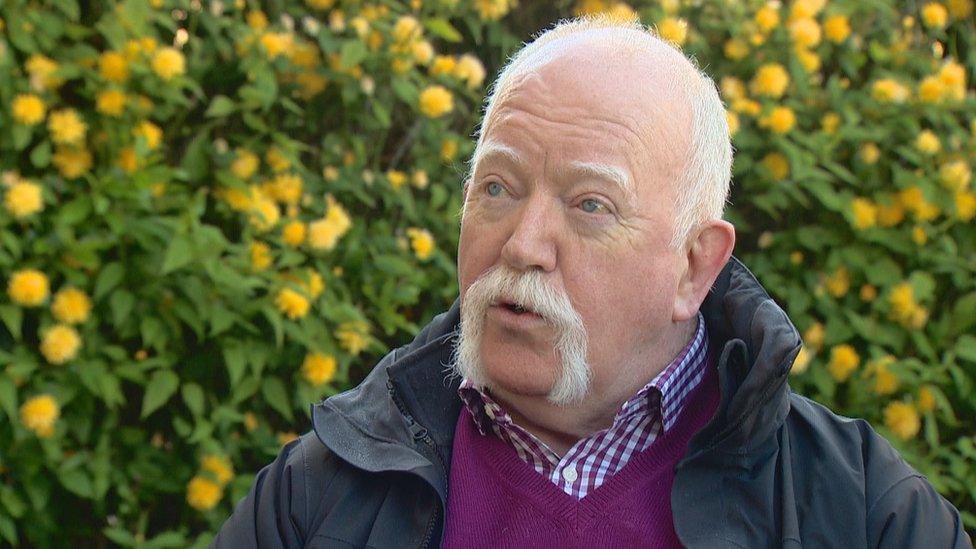
- Published21 October 2021
